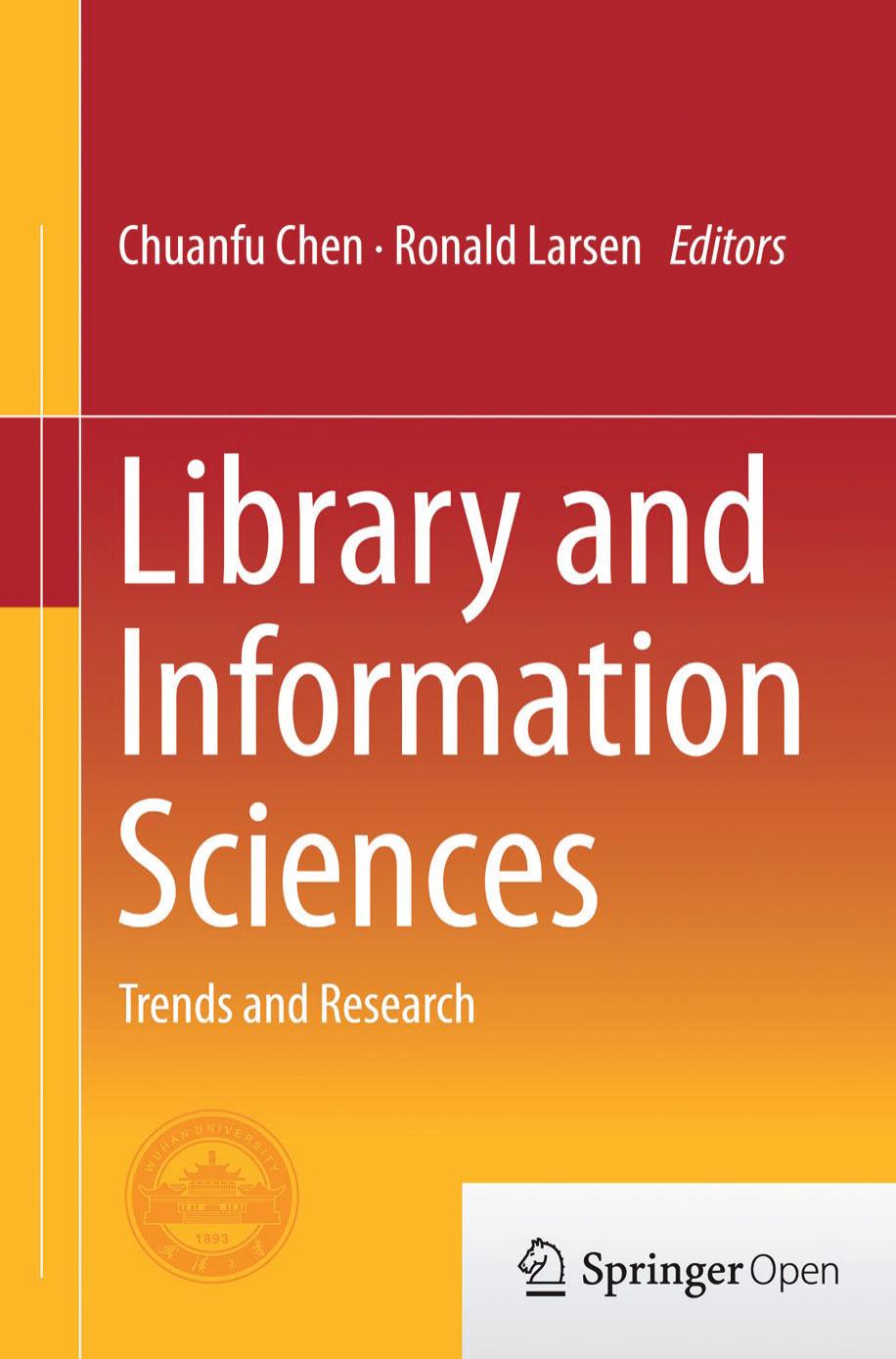Library and Information Sciences by Chuanfu Chen & Ronald Larsen

Author:Chuanfu Chen & Ronald Larsen
Language: eng
Format: epub, pdf
Publisher: Springer Berlin Heidelberg, Berlin, Heidelberg
Faceted Classification
Faceted classification, simply speaking, is composed of several facets and a number of categories under each facet (Tunkelang 2009).The facet corresponds to an attribute of the information collection and the categories contained represent various values of that attribute (Hearst 2006). As early as the 1960s, Ranganathan (1960) introduced the notion “facet” to library and information science. In his Colon Classification Scheme, the five fundamental facets are personality, matter, energy, space, and time. But in most cases facets are created for particular domains, such as the author, language, and year of a book, or the price, brand, and size of a laptop.
Flamenco (Hearst 2006), mSpace (Schraefel et al. 2005), and Relation Browser (Capra and Marchionini 2008) are pioneer studies which applied faceted classification in search. These prototype systems, though different in terms of information type and interface design, all provide a set of small categorical hierarchies instead of one large cover-all topical hierarchy. Users are allowed to browse the hierarchies one by one and select the most appropriate category in each, which enables them to narrow down the search scope gradually. Related user studies showed that faceted classification was easy to understand, and many searchers preferred this approach for it avoided empty results and supported exploration and discovery (Yee et al. 2003).
We can find faceted classification in a wide variety of search environments. On E-commerce platforms, both C2 C (e.g. eBay and Taobao) and B2 C (e.g. Overstock and Bestbuy), faceted search are making full use of products’ structured metadata to improve their find ability, producing great business value (Dash et al. 2008). In addition, next-generation library catalogs are now featuring faceted search. Many university libraries, such as those of Duke University, Harvard University, and the University of Pittsburgh, depend on discovery service providers (e.g. Endeca, AquaBrowser, and Summon) to offer faceted browsing experience to their patrons (Yang and Wagner 2010).
By taking multiple conceptual dimensions into consideration, faceted classification better satisfies different users who view the world differently. It is an effective way to cope with the challenges in information organization brought about by compound concepts. And faceted search is in essence a form of exploratory search. After the search results are mapped onto a faceted classification system, users can look into them in a more flexible manner, i.e. examining any number of facets in any order. If combining the labels of all the categories ever selected, one can see a complex Boolean query. This approach favors recognition over recall to alleviate human mental work. Thanks to the logical and predictable structure of faceted classification, faceted search systems will become the prevailing search tools in electronic environments.
Download
Library and Information Sciences by Chuanfu Chen & Ronald Larsen.pdf
This site does not store any files on its server. We only index and link to content provided by other sites. Please contact the content providers to delete copyright contents if any and email us, we'll remove relevant links or contents immediately.
| Arts & Humanities | Health |
| Language Arts | Library Skills |
| Mathematics | Reading & Phonics |
| Science & Technology | Social Studies |
The Art of Coaching Workbook by Elena Aguilar(48060)
Trainspotting by Irvine Welsh(20054)
Twilight of the Idols With the Antichrist and Ecce Homo by Friedrich Nietzsche(17705)
Fangirl by Rainbow Rowell(7832)
Periodization Training for Sports by Tudor Bompa(7327)
Change Your Questions, Change Your Life by Marilee Adams(6640)
This Is How You Lose Her by Junot Diaz(5768)
Grit by Angela Duckworth(4735)
Red Sparrow by Jason Matthews(4664)
Asking the Right Questions: A Guide to Critical Thinking by M. Neil Browne & Stuart M. Keeley(4574)
Paper Towns by Green John(4169)
Room 212 by Kate Stewart(4105)
Ken Follett - World without end by Ken Follett(3972)
The Sports Rules Book by Human Kinetics(3588)
Housekeeping by Marilynne Robinson(3401)
The Motorcycle Diaries by Ernesto Che Guevara(3332)
Introduction to Kinesiology by Shirl J. Hoffman(3299)
Exercise Technique Manual for Resistance Training by National Strength & Conditioning Association(3291)
Double Down (Diary of a Wimpy Kid Book 11) by Jeff Kinney(3272)
